I’ve found myself in a familiar place recently. Opening Slack at sunrise, responding to emails at dinner, doing busy work before bed. The bookends of the 9-5 have drifted, blurring the boundaries of life and work. Days slip by like this. My weeks are busy but unvaried, a wall of white noise.
For many of us work is always at hand, with always more to do. Ticking off a todo here and an email there helps us feel like we’re being useful, we have a purpose. Weeks like these are fine if they are rare. A big push to get a project over the line, starting something new on the side. It’s easy for this white noise work week to become the white noise work month, and before long you’re on a slow road to burn out.
Overworking like this puts all my identity and self esteem into one vessel, and it becomes how I define myself. It has an outsized impact on my mood, which makes me feel too reactive, and to be frank, uninteresting. When this happens I need to look at my week with a different lens. To spot how I can make space for things I want to nurture, and amplify the things I enjoy in life.
Reflecting on my ratios
So, I could work less (which would have made for an even shorter post), but this is only part of the problem. Working is a default state when I’ve got nothing to displace it, but the white noise work weeks is also a reminder of all the things I’m not doing. I want my weeks to have rhythm and variety, that help create months with balance and fulfilment. Easy and enjoyable things to aim for, but to help be more specific I sketched out a goal of sorts. Things I want to be doing less of, things I want to do more of, and things I need to make space for. All to set a new, more fulfilling balance.
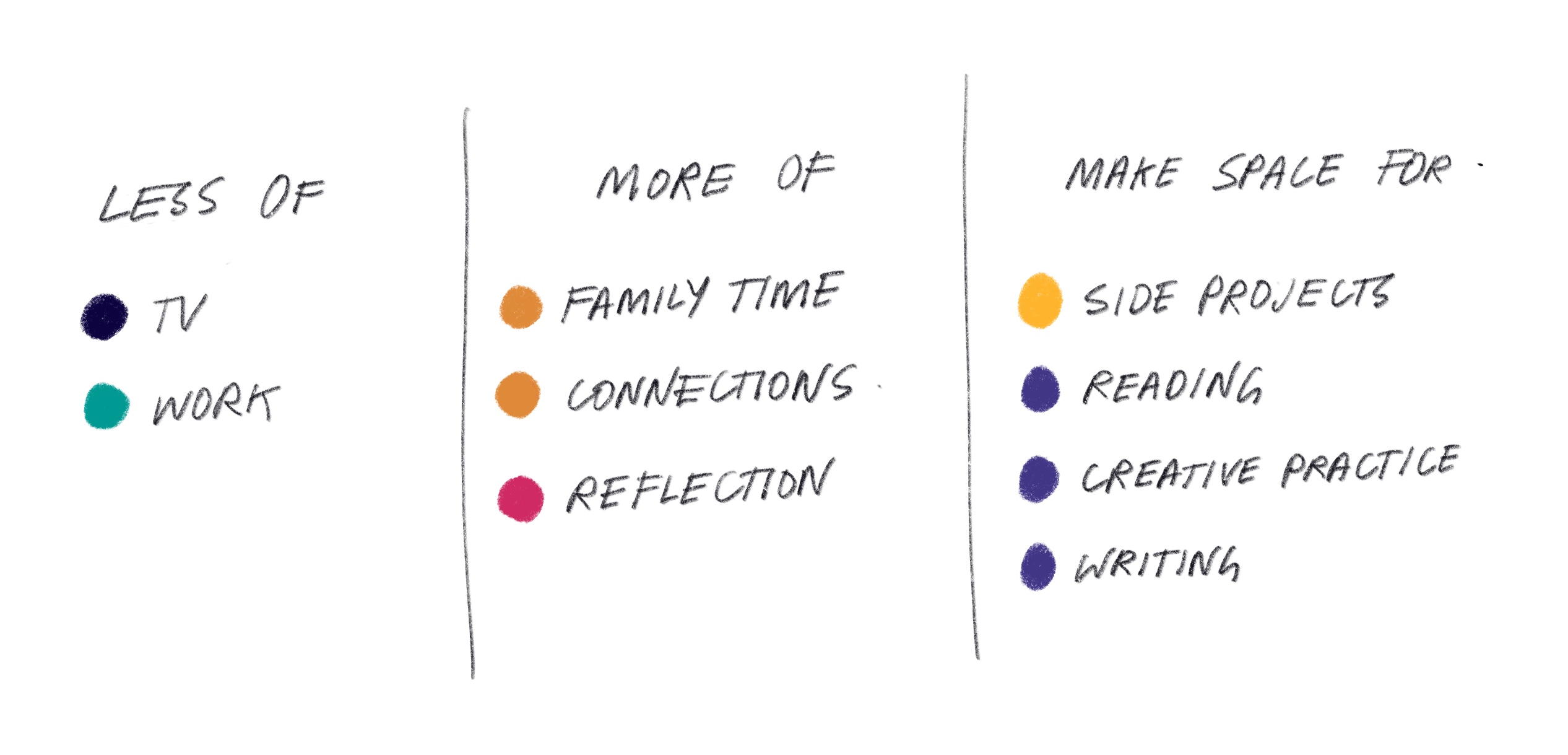
Some need to happen in a particular location, some can happen anywhere. Some need a lot more energy and focus, others are a way to relax. The art of fulfilling weeks is finding the right balance between these things, and defending their time against the white noise work week.
Taking stock of how much time I have
Over the years I’ve been a little obsessive over how other people spend their days. Little tidbits of how they find balance and time for the things they are trying to maximise in their lives. I’ve tried Jessica Hische’s Ultra-Schedule, borrowed bits from My Morning Routine, and the simple wisdom of Mr Bingo. For a brief period whilst dating someone in a tax bracket I’ll never be in, even anecdotes from Lunch with the FT. Between artists and financiers, there is a common thread that connects them all. They are very intentional with what they spend their time on, and at which part of their day they do it.
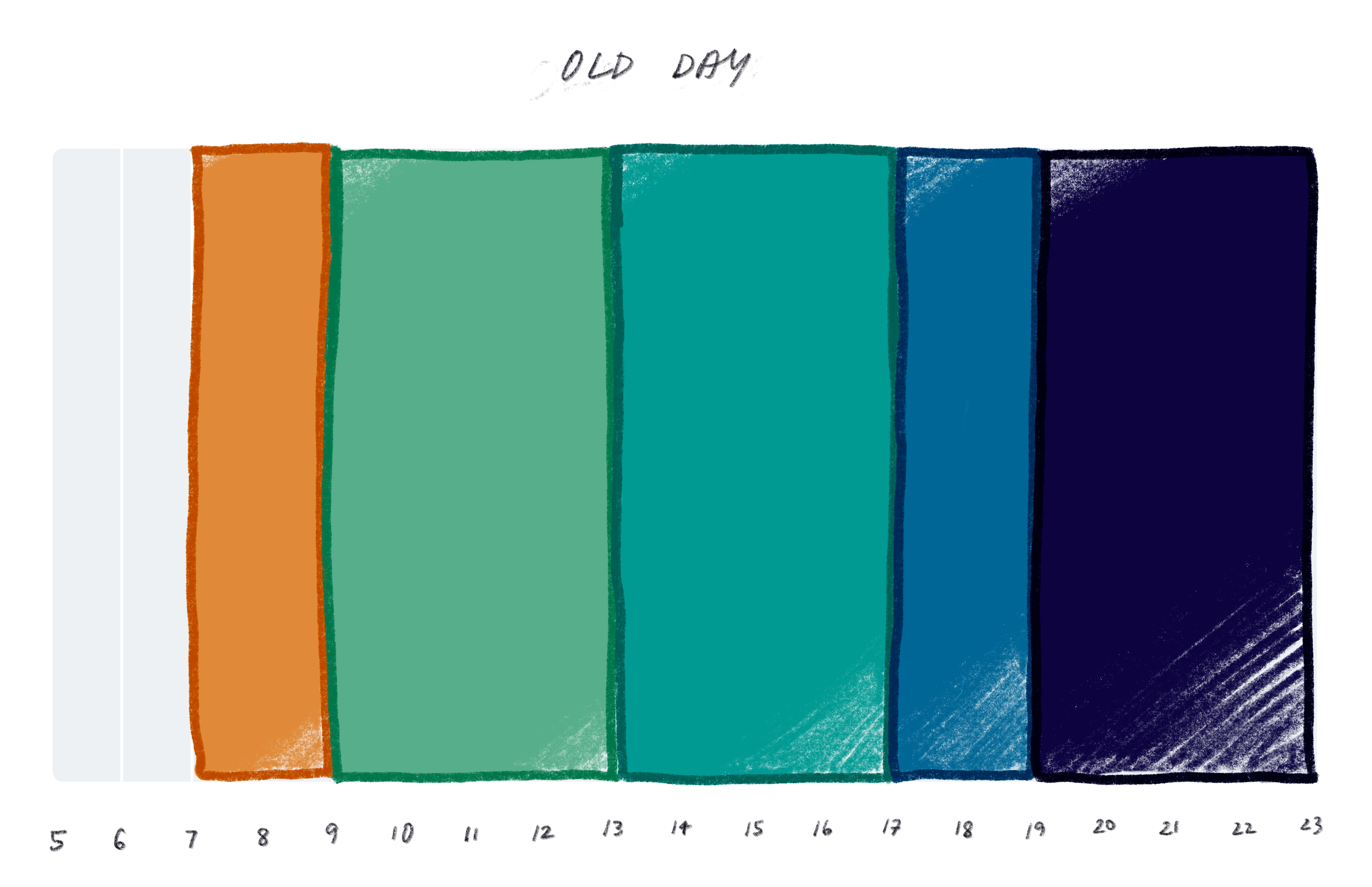
Looking at my days, after a good night’s sleep and other hard commitments, I have about 4 hours free a day. This all falls into one space after dinner, divvied up between work and Netflix. This isn’t my prime time brain time, but is a great home for “make space for” things like reading and creative practice.
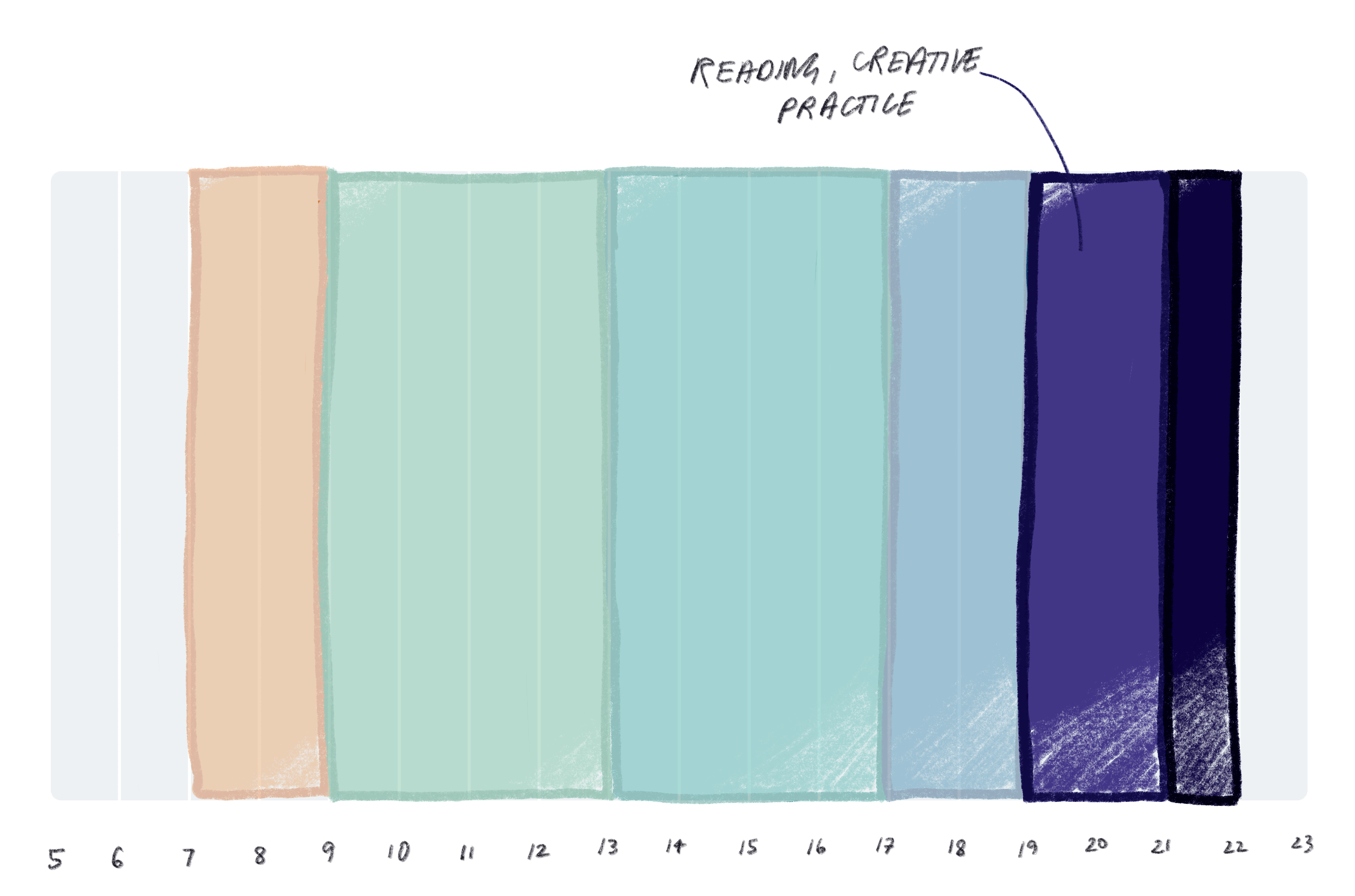
Surprisingly, willing these to happen has not helped. For these to actually take root I’ve had to put them where the bad habits start. Leaving a book in progress on top of the TV remote, or making sure the iPad and Pencil charged and ready to use. The more intentional I can be with this, the harder it is for the white noise work week to creep in.
Starting my days better
I’m most creative, productive and receptive first thing in the morning. The earlier the better. Knowing this, and testing it’s limits, I moved my day back to the unholy hour of 5am. My new “selfish space”. I can work on whatever I want, and not feel like I’m displacing family time or sacrificing other spaces to work on them.
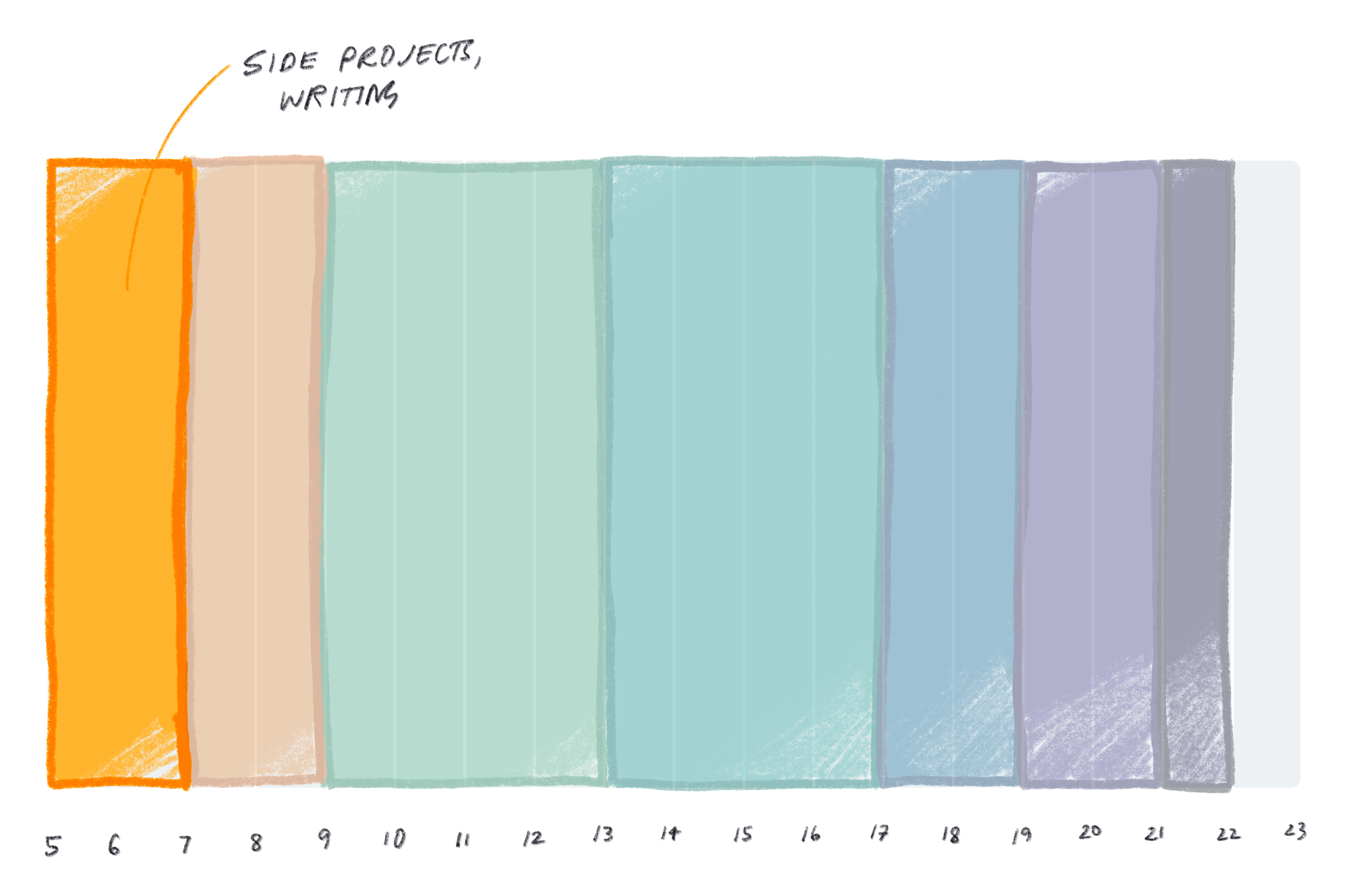
Again this isn’t perfect. Am I thinking and writing with perfect clarity at 5:06? Deeeeeefinitely not. For writing and side projects, these two hours are more than the energy and focus I have in the four after dinner. Like the “hour of sleep before midnight is worth two after”, but in reverse. Selfishly, spending time on myself first makes it much easier to focus and be present in the other spaces in my day.
Reflecting on how the week feels
The most important space in my week is time to reflect. A handful of simple prompts, it let’s me think about how the rhythm of the week has been. What went well, what didn’t, and what should I change. As with most things in life, it’s far more about the feeling of how things contribute than the exact amounts. This used to be on Sunday night, but I’ve found this more easier first thing Friday morning. That way my weekends are obligation free.

Fulfilling years start with fulfilling days
I had a CEO once who had a mantra for hitting goals that went “daily, makes weekly, makes monthly, makes yearly”. A former statistician, he thought of this as a numbers game, but the compounding nature of it stuck with me. The time we spend in our days is how we’ll spend our lives.
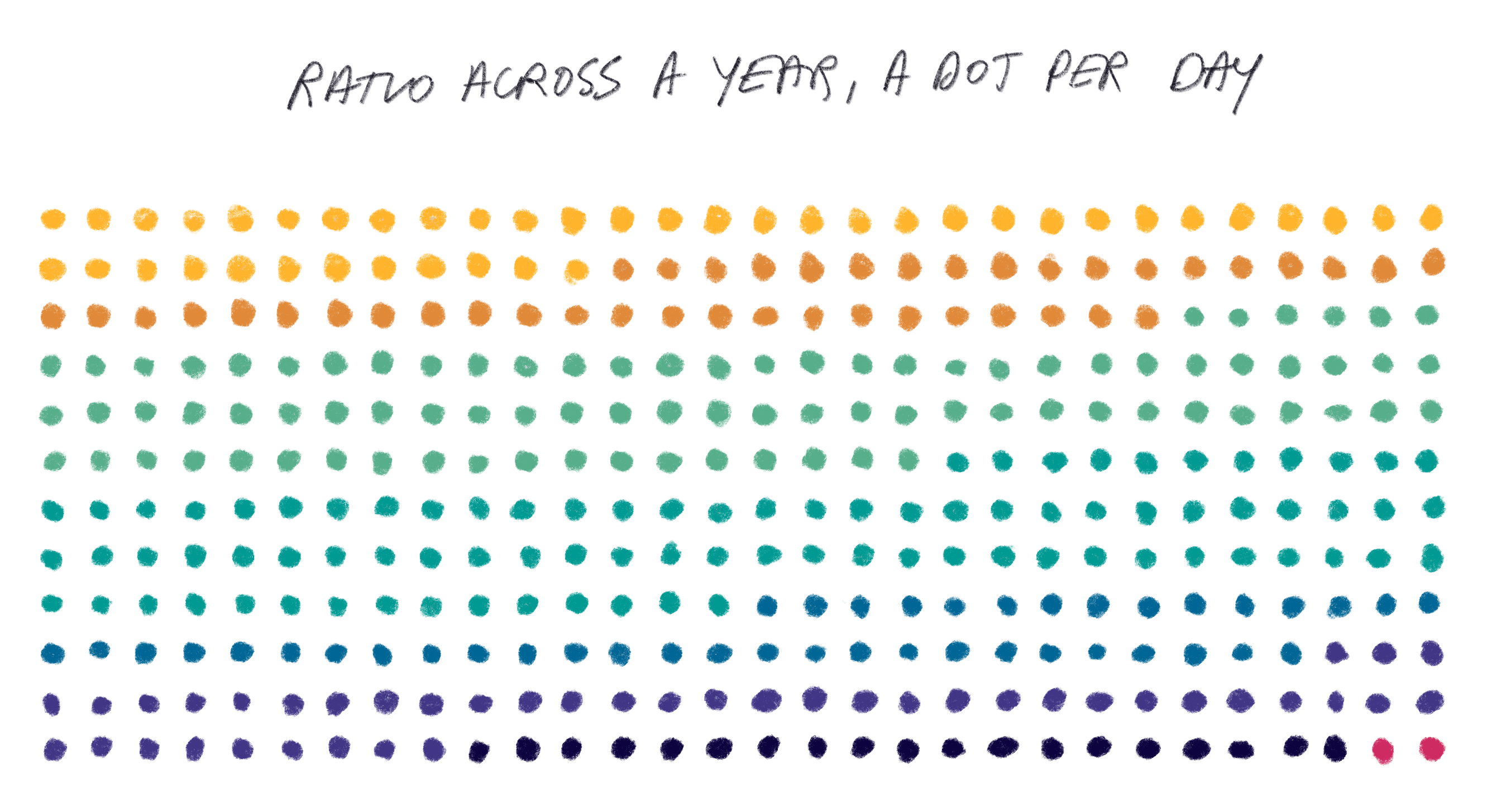
What I’ve been trying to “maximise” in my life has changed a lot over the years, especially since becoming a parent. The joy is being comfortable with that change, and re-scaffolding my week to support it. For now though, my white noise work week has faded. My weeks have their rhythm back, and I have a process to keep that on course.